Ukraine and the Peace Initiative with Russia, by Derek Fraser
By Derek Fraser, Centre for Global Studies, University of Victoria
The combination of Ukraine’s inexperienced and naive President, Ukrainian weariness with the unremitting war in the Donbas, pressure from France and Germany, and American ambiguity, is pushing Ukraine to accept peace with Russia on terms that threaten Ukrainian independence.
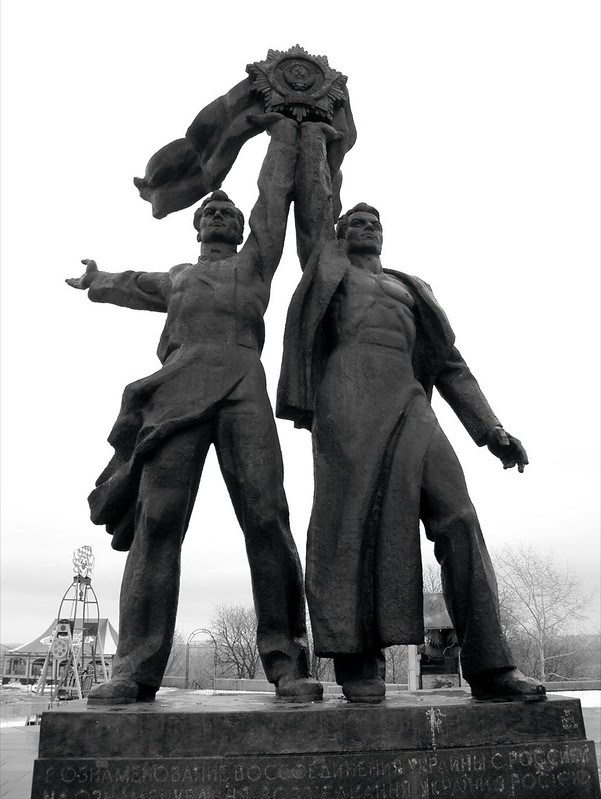
Analysis
To understand the pass in which Ukraine finds herself we must go back to the events of 2014 when the overthrow of the venal, dictatorial, and pro-Russian president of Ukraine, Viktor Yanukovich, led Russia, in an attempt to prevent Ukraine from moving West, first to seize Crimea, and then to seek to provoke uprisings in a broad band of Ukrainian territories from Donets and Luhansk, known as the Donbas, in the South-East, Kharkiv and the industrial belt of Dnipro and Zaporizhia in the Centre, to Odessa in the South-West. An influential voice on Russian foreign policy, Sergey Karaganov, the Honorary Chairman of the Presidium of the Council on Foreign and Defence Policy, and a Kremlin adviser on Russia’s relations with the other former Soviet republics, stated at the time Russia wants “a united, federative Ukraine, if possible. Only this arrangement will maintain the formal integrity of the state, but Ukraine as a full-fledged state will be a distant historical memory.” “This scenario will ensure Russia’s de facto dominance in east and southeast Ukraine and semi-autonomy for the country’s west.”
The failure of the Russians to kindle revolt in any part of Ukraine save the Donbas, did not change Russian plans. The Donbas, to remain controlled by Russia and largely autonomous of Ukraine, was nevertheless to maintain its representation in the Ukrainian parliament, allowing it to influence Ukrainian policy, including any move to Ukrainian membership in Western treaties and organizations.
Ukraine fared badly in the fighting that followed the uprising in the Donbas. The Protocol that emerged from the Minsk I and the Minsk II negotiations in September 2014 and February 2015 between Russia and Ukraine, with the participation of Germany, France, and the Organization for Security and Co-operation in Europe (OSCE), has had little effect. The ceasefire the Protocol stipulated has repeatedly been broken, although fighting is at a lower level that it was before Minsk II. The Protocol provided for local elections and the withdrawal of foreign armed forces, actions that were to lead to the return of separatist regions to Ukraine’s control. None of these measures have been acted on.
Part of the problem may have been that the Protocol did not indicate in which order the steps should be taken. The German Foreign Minister Frank Walter Steinmeier filled this gap when he presented, with French support and involvement, in October 2015 a Formula for carrying out these provisions.
Under the Steinmeier Formula, Ukraine would introduce in the constitution a special autonomous status for the Russian-controlled part of the Donbas that would give it representation in the Ukrainian parliament.
In addition, the terms for the municipal-level elections that, under the Minsk Protocol, were to be carried out in accordance with Ukrainian law, were instead to be negotiated with the Donetsk and Luhansk “people’s republics,”
Ukraine would bring the special autonomous status for the region into effect temporarily on the date of those elections and then on a permanent basis if the Organization for Security and Cooperation in Europe (OSCE) found that those elections had “on the whole” respected international standards.
The elections were to take place before any withdrawal of any foreign forces. The departure of foreign forces and the restoration of Ukrainian control on the Ukrainian-Russian border on the east of the Donbas were instead matters to be negotiated separately after the political steps had been taken.
Unlike the Minsk Protocol, the Steinmeier Formula did not have any official status.
The Ukrainian government did try to introduce legislation in 2015 to decentralize its constitution in reponse to the Minsk II Protocol, but gave up in face of a parliamentary and popular revolt.
It has always refused to contemplate holding elections in the rebel areas without the prior withdrawal of armed forces and the restoration of Ukrainian control of the border.
It has also insisted that any elections should be held in accordance with Ukrainian law. The special law for elections in the Donbas would provide for Ukrainian and international election observers, the participation of all willing political parties, freedom of political campaigning, access to Ukrainian media for the residents, the freedom of Ukrainian media to report on the election campaign, and voting rights for the one and a half million refugees who had fled the Donbas.
Since the rejection by Ukraine of the terms of the Steinmeier protocol, there had been, up until the election of Volodymyr Zelensky as President of Ukraine last April, a stalemate in diplomatic relations between Ukraine and Russia; but a stalemate accompanied by repeated violations of numerous ceasefires and the use of prohibited weapons on the battle field, the seizure of Ukrainian naval ships in the sea of Azov last November, and the application of economic sanctions.
The announcement by the newly elected President that he wanted to reach a peace settlement within a year has led to an increase in Russian political and military activity and economic pressure.
The Russians revived the Steinmeier Formula. In October 1, after weeks of negotiation, and under pressure from Germany and France, President Zelensky finally gave in and accepted the Steinmeier Formula as a basis for a settlement. His move was greeted with hostile demonstrations across the country, and a condemnatory letter signed by Ukrainian notables, including former foreign ministers.
At the same time, however, as he accepted the Steinmeier Formula, Zelensky effectively undermined it by issuing a declaration reaffirming the traditional Ukrainian position that there could be no internationally recognized elections in the Donbas without the prior withdrawal of armed forces and the restoration of Ukrainian control of the border.
We doubt whether Zelensky’s declaration will be accepted by the Russians. Putin’s top adviser, Yurii Ushakov on September 13 had demanded a “written codification of the Steinmeier Formula” at the leaders’ summit, as well as finalization of the summit’s concluding document ahead of the event itself, with its implementation guaranteed by an “iron agreement”.
We do not know either whether the Germans, and especially the French, will support any Ukrainian derogation from the Steinmeier Formula. President Macron stated in a speech on 27 August that “pushing Russia away from Europe is a profound strategic mistake.” The EU had to make a new strategic offer to Russia.
Perhaps because of French and German pressure, the Ukrainians had earlier indicated their desire to bring the Americans and British into the negotiations. While the State Department has always supported the Ukrainian position on elections, President Trump has repeatedly called on the Ukrainians to settle their differences with the Russians. Then of course, he held up almost $400 million in military aid.
If the Russians refuse to accept Zelensky’s declaration, it is hard to see what interest the Ukrainians have in maintaining their acceptance of the Steinmeier Formula. As things now stand, the peace process is not likely to lead to the recovery of the Donbas for Ukraine, but instead to leave the Russians in control of a Trojan horse seeking to destroy Ukrainian independence.
In the first place, the Russians apparently consider that the two governments, together with their military organizations, of the “people’s republics” in the Donbas would remain in place, unaffected by the outcome of the municipal elections. The people’s republics have already indicated that control of the borders was their responsibility and not that of the Ukrainian government.
In addition, we should have no illusions about what the Russians are after:
The Russian online newspaper Vzglyad stated on Oct 3 that the adoption of the Steinmeier Formula will effectively turn Ukraine into a loose confederation, which Russia may gobble up piece by piece.
The Russian economist and former adviser to President Putin, Andrei Illarionov has stated that Putin sees in the Steinmeier Formula “a historic chance to implement the program that he’s reiterated since 2014, namely to restore full control over Ukraine”.
“Ukraine will get a ticking time bomb, because the launch of this mechanism will mean the implementation of the first and second Minsk Agreements, as a result of which two quasi-state entities are integrated into the state body of Ukraine. These two entities will make Ukraine’s political system implode from within. They will block any attempts to bring about concrete internal developments, towards which pro-Ukrainian parties and civil society have been working so hard. Of course, they’ll block Ukraine’s movement and aspirations towards Europe, the European Union, NATO and integration into the Western world.”
We can only hope that President Zelensky will have the courage to withstand the considerable pressures that will be brought against him in his search for what appears at this time to be an illusory peace settlement.
(This analysis was presented during the event “Trump, Ukraine, and Putin” on October 9th at the University of Victoria)
About the author: Derek Fraser is an Associate Fellow at the Centre for Global Studies and Adjunct Professor of Political Science at the University of Victoria. His work has supported the democratization process in the Ukraine and he has organized and contributed to academic and foreign policy conferences, notably on failed states and Eastern Europe. Formerly, Derek Fraser was a member of the Board of Directors of the Canadian Institute of International Affairs (CIIA) and President of the Victoria branch.
“Friendship of Nations monument- brothers” by eldan is licensed under CC BY-NC-SA 2.0
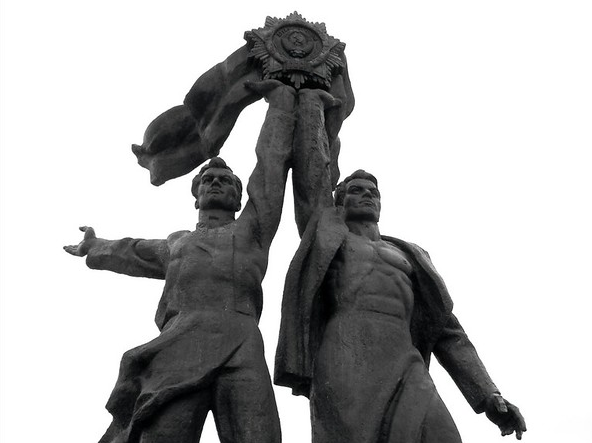
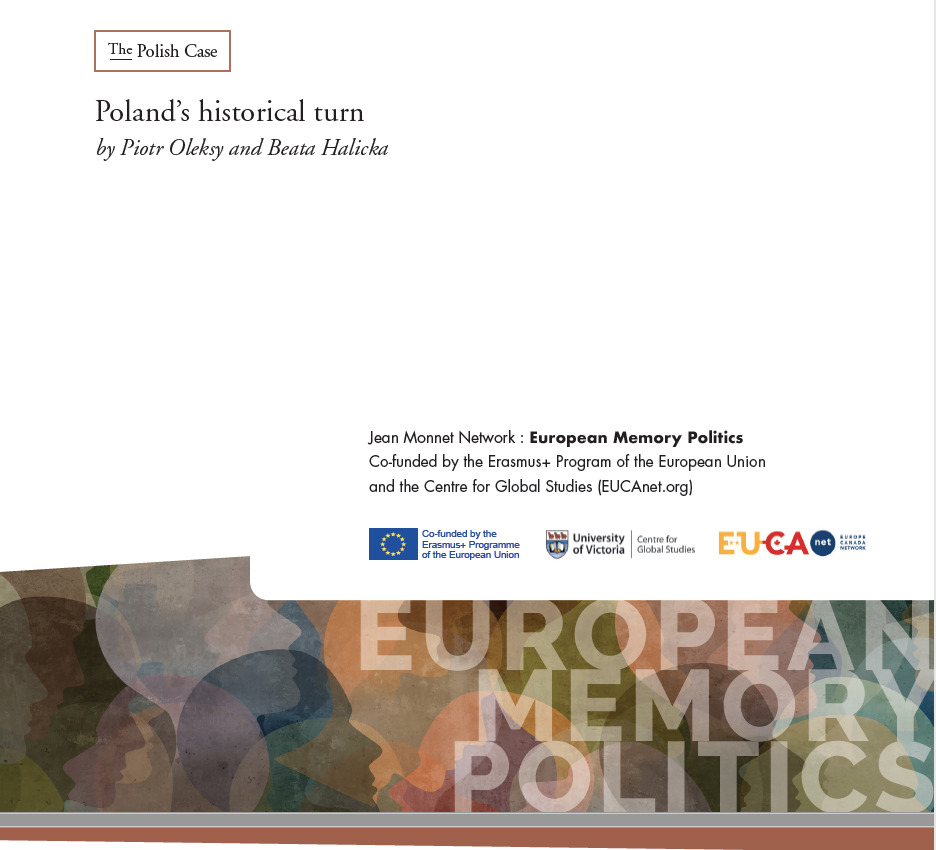
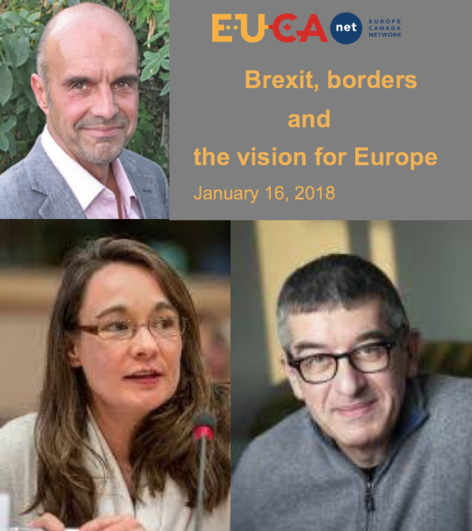
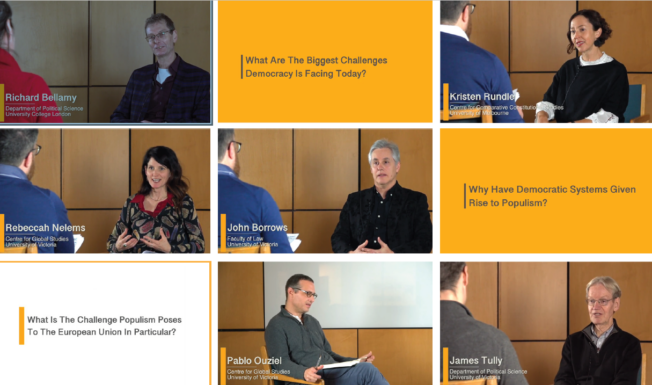
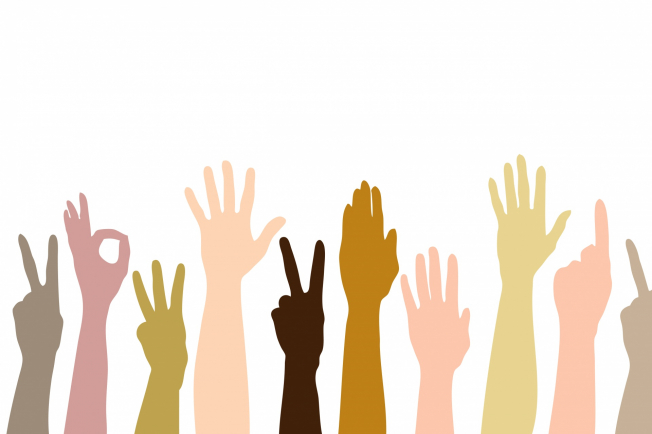
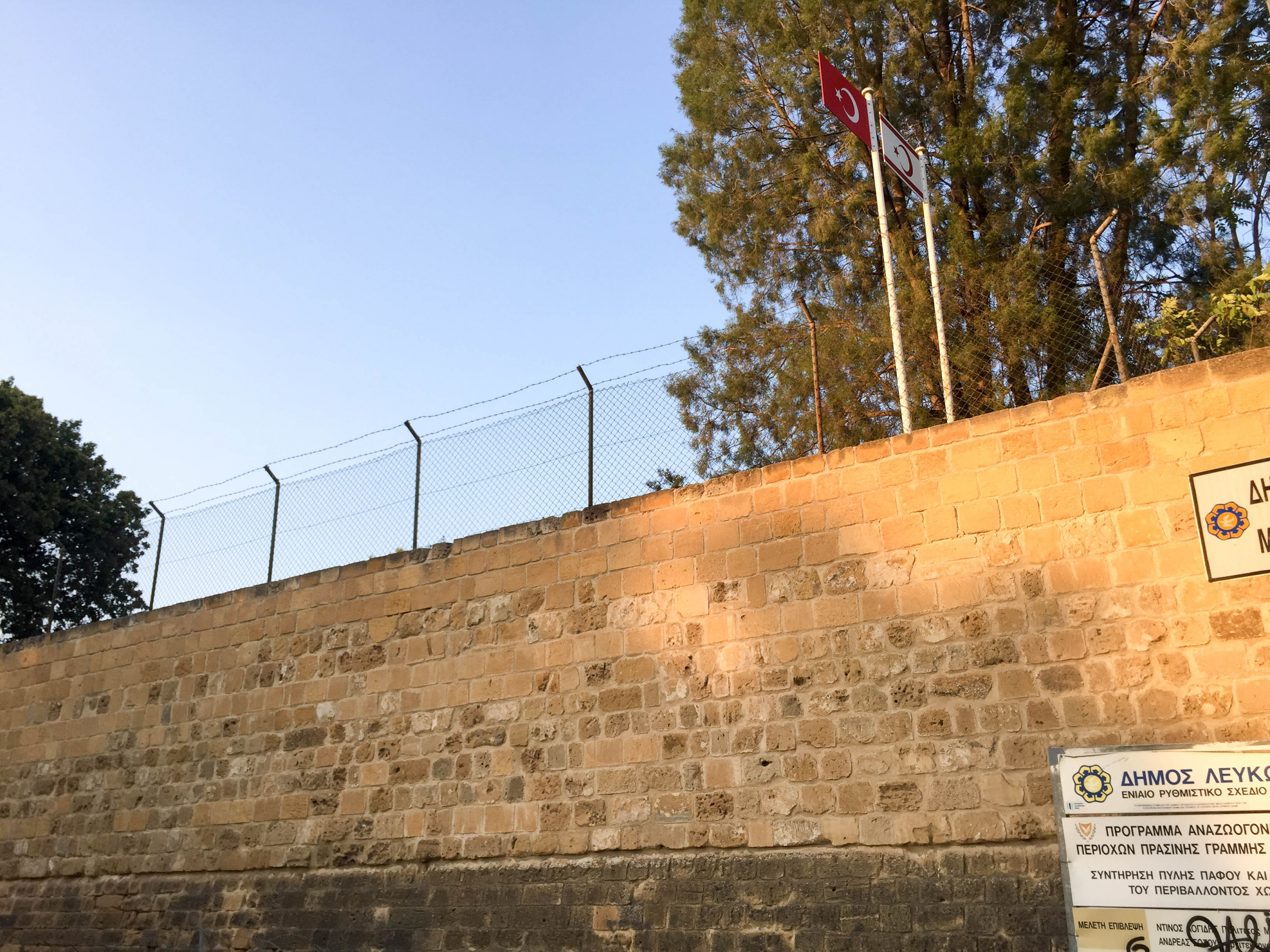
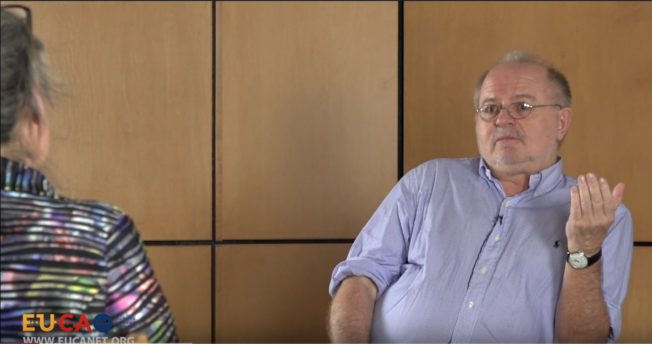
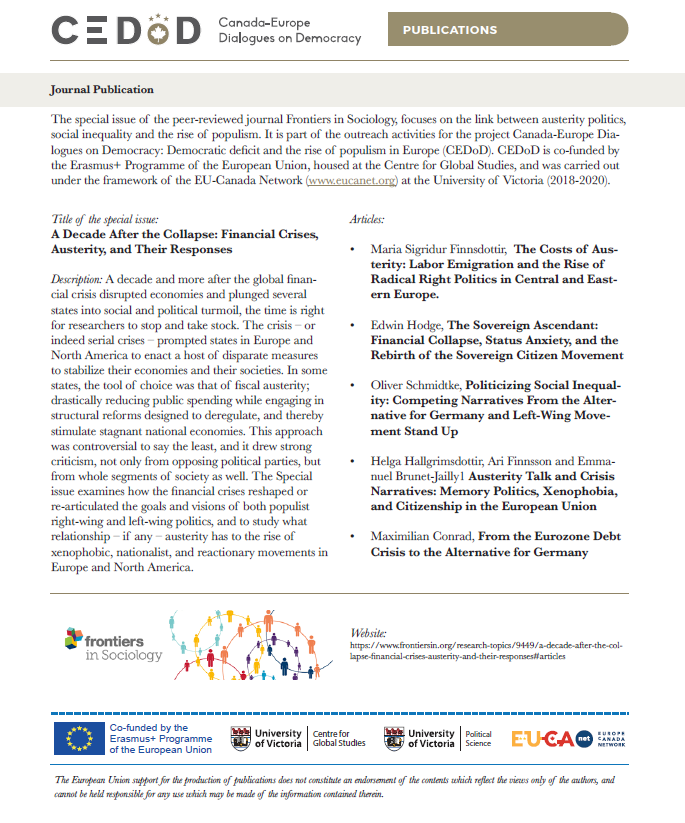



Leave a Reply
Want to join the discussion?Feel free to contribute!